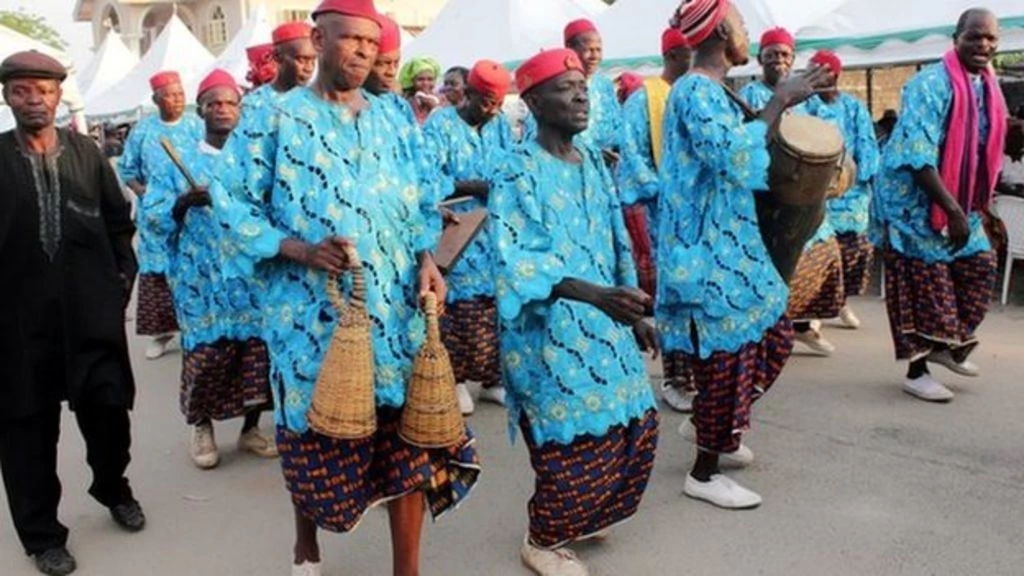This makes one wonder, how is a typical Igbo burial? The Igbos belong to the Southeastern part of Nigeria. Although each community within the tribe has its peculiar own custom and tradition, some similarities exist.
The Igbos do not see death as a final destination but believe it is a continuity of consciousness. The good people who die join the ancestors who intercede for the members of the community. The evil ones become wandering spirits in evil forests.
In religions like Islam, death is seen as a transition. A dead person is typically buried the same day they die without much pomp and pageantry.
But for the Igbos, burial rites are taken seriously. The way a deceased person is buried influences how they will fare in the afterlife.
Ebo Socrates, a fellow at the Institute of Foundation Studies writes, “Their status in the land of the dead, which by the way is not far removed from the community depends on how well they had lived and how well their progeny had discharged their duties towards them, especially by according them a befitting burial.”
For the family, this might be a bit strenuous. I spoke with Janet an indigene of Abia State who attended her grandparent’s burial about how burials in Igbo culture.
READ ALSO: Buhari’s Would Have Completely Wrecked Nigeria By 2023 – Northern Elders’ Forum
I asked what she remembers about the burial she said, “Expenses, rights and lists.”
The burial costs a lot and that causes a lot of delays. It is an unending money spending exercise because every group and association that the deceased belonged to would ask for money.
Paying missed dues is compulsory. The deceased must have been part of an age group association. The members justify these dues by saying when they are dead, their children will pay the same dues.
Janet says, “If the person who died missed some association dues, the family of the dead person must pay up.”
“The number of lists depends on how many associations the deceased was a part of. They will bring their list of burial demands. The bereaved have to plan with kinsmen, church if applicable.”
Buying a cow during burial is non-negotiable
She remarked, “You have to buy at least one cow. The bereaved can then add as many as they want.”
The older the deceased, the more lavish the celebration
“The celebration is as though someone isn’t about to be buried. You even have to pay the fake mourners.”
A dead person is not just buried and forgotten. A lot of activity happens even after the burial.
Janet says, “It takes like months to bury an elder in my place. After the burial, there is another event one year later and six months later. Six months is for the widow to get rid of her mourning clothes and one-year remembrance.”
I asked what she thought about Obi Cubana mother’s burial. She agrees that “Burials cost a lot but they might have gotten a bit overboard. Also, if it’s a really old person, some families just like to make it big.”
The dues irks her, “You just can’t get away from those dues.”
At the burial, there is usually a long procession and a lot of dancing.
Death is painful and hard to grapple with in every community. It signifies finality, an ending of some sort.
After the church ceremony, the body is carried to the house where people are already waiting for it. In the compound, a dancing procession begins;
“The first daughter holds a picture of the deceased (if it’s an old person) and dances round to greet guests who offer money or condolences,” Janet also says.
“Note that this happens before or after the person is laid to rest. In our case, it happened after. Once the body is home. There is a decorated room where immediate family and extended come to bid their farewell.”
“After that, more tears then dancing around with the portrait.”
“The widow is left out of all the drama and she must sit on the floor or a chair depending on the culture. If it’s the culture where they cut the hair, it’s done the day before.”
“She usually has people with her consoling her and ensuring she’s alright but the irony is others are partying in canopies oh.”
“But when they kill the cow, different groups come to take their parts. Whatever is left is shared among the family.”Customs and religions have built ideologies and rites to deal with death and funerals.
Over the past week, the carnival-like funeral of the mother of businessman Obi Iyiegbu popularly known as Obi Cubana has got Nigerians talking because of the show of wealth that was displayed there.

